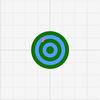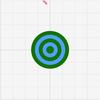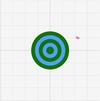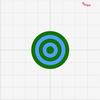This is an archive of information released in the past.
Disclaimer: It may contain broken links or outdated information. Some parts may not function in current web browsers.
*Visit https://humans-in-space.jaxa.jp/en/ for the latest information.

Kibo-RPC News: Announce the results of the 1st Kibo Robot Programming Challenge!
Japan Aerospace Exploration Agency (JAXA), in collaboration with the National Aeronautics and Space Administration (NASA) under Japan - U.S. Open Platform Partnership Program (JP-US OP3) for maximizing ISS utilization outcomes and increasing cooperation with countries in the Asia-Pacific region, held the 1st Kibo-Robot Programming Challenge (RPC) final round on October 8, 2020.
Summary
This event nurtures students' engineering skills, such as robot programming and space development. It encourages students to keep on challenging and inquiry with innovative minds and learn teamwork.
In the Final Round, representatives of seven countries and regions selected from each country/region participated online. They compete with their program skills under the simulation and actual flight with a free-flying robot in the Kibo module. As a result, the Japanese team, Hypernova, won first place in Programming Skills Award. The Indonesian team, Spacecat, won the Best Achievement Onboard Award (in-orbit flight category).
In the Kibo-RPC, 1168 students of 313 teams participated from Australia, Indonesia, Japan, Singapore, Taiwan, Thailand, and UAE. Also, students from Bangladesh participated in it as an observer that adds up to 361 teams, and 1340 students participated.
We would like to express our sincere gratitude to all the participants and staff who support this event to make it happen. We are planning to hold the second Kibo-RPC in the next year. Please join us again!
A detailed report for the Final Round is as follows.
The report of the Final Round
The video of the final round is available on the following JAXA channel.
The selection of representatives of each country/region started at the beginning of June 2020. Unfortunately, due to the spread of COVID-19 infection, participants other than the Japanese team could not come to the Tsukuba Space Center for the Final Round. Therefore, they participated remotely by using a web conferencing tool. Despite the situation, they were very excited, seeing the Astrobee moving aboard the International Space Station with their programming, and enjoyed joining the event.
The Astrobee team of NASA's Ames Research Center (ARC) in California's Silicon Valley and JAXA worked hard for the final round and conducted many in-orbit operational checks on Astrobee. However, some concerns about the self-localization of Astrobee in-orbit has remained. Due to that concerns, it is not possible to clearly distinguish whether flight failure is caused by the compatibility of the participant's program, or the system of Astrobee. Therefore, we have decided to select the teams with the best programming skills from the simulation environment result. Yet, we also set the Best Achievement Onboard Award given to a team that made it to the goal faster and precisely.
At the beginning of the event, astronaut YAMAZAKI Naoko, the MC of the Final Round, gave a greeting in the opening ceremony. Then, she introduced two commentators, Professor NAKASUKA Shinichi from The University of Tokyo and astronaut YUI Kimiya. She also introduced YANAGIDA Kanta from The University of Tokyo as an assistant to the commentators. Following the introduction, a video message from Jose V. Benavides, the Astrobee facility project manager at ARC, was broadcasted. After that, each team showed their introduction videos and personally introduced themselves with enthusiasm. The introduction video was so unique that it included various contents, such as presenting their own country/region, writing the programming, and strategies. In the greeting, they expressed their joy and expectations for the final round.
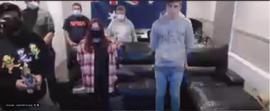
GALENVEX, Australia (Credit: JAXA)
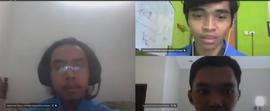
Spacecat, Indonesia (Credit: JAXA)
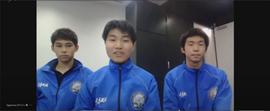
Hypernova, Japan (Credit: JAXA)
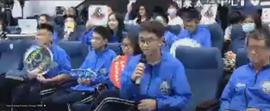
Taipei Fuhsing Robotics Omega, Taiwan (Credit: JAXA)
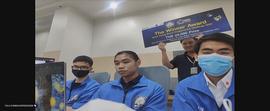
won-spaceY, Thailand (Credit: JAXA)
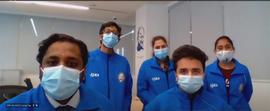
999-IN-SPACE, UAE (Credit: JAXA)

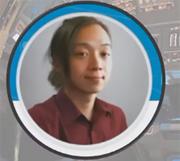
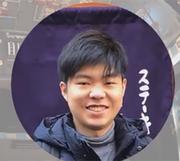
Moonmen Group, Singapore (Credit: JAXA)
(* Video only as they were not able to make it to the introduction session.)
NASA astronaut Chris Cassidy had prepared for the event in-orbit, and he gave us the Opening Remarks. Following the Opening Remarks, the competition started. The running order of Astrobee is according to the result from the preliminary round.
As the competition went through, some teams completed their mission, but some could not make it to the target because Astrobee lost its position, out of control, or could not make it in time. Every team created an innovative program because they had to set a strategy to avoid the virtual obstacles (called KOZ: Keep Out Zone) that Astrobee needs to avoid or cannot enter the area. Therefore, each team contemplates its routes, such as a route that goes to the next point quickly and moves with minimal movement. Usually, the QR code is read by the camera on the front of Astrobee, but one team tried to read the QR code by the camera on the back to minimize the change of direction.
In the middle of the event, a system error of Astrobee occurred, and it could not fly well. JAXA's Kibo-RPC technical team and NASA's Astrobee team resolved the system error with their hard work and help from astronaut Chris Cassidy. Because of their tremendous efforts to recover the Astrobee, all seven teams could finish their turns.
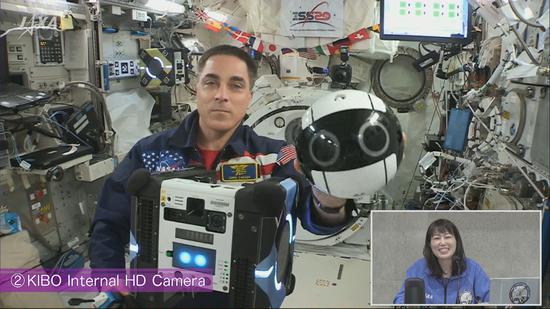
Astronaut Cassidy with Astrobee and Int-Ball (Credit: NASA/JAXA)
| No. | Team Name | country / region |
|---|---|---|
| 1 | won-spaceY | Thailand |
| 2 | Spacecat | Indonesia |
| 3 | 999-IN-SPACE | UAE |
| 4 | Hypernova | Japan |
| 5 | Taipei Fuhsing Robotics Omega | Taiwan |
| 6 | GALENVEX | Australia |
| 7 | Moonmen Group | Singapore |
Following the competition, astronaut Kimiya Yui presented the Award ceremony. First, it showed all the seven teams' simulations all at once, and commentators explained some points of the strategies and gave feedbacks. Astronaut Yui then announced the Programming Skills Award winners based on the explanation of the operation of the program in the simulation environment. Indonesia national team Spacecat won the 3rd place, UAE national team 999-IN-SPACE won the 2nd place, and Japan national team Hypernova received the 1st place. Hypernova won the competition because their program was accurately irradiating the target and that the mission completion time was very short.
Hypernova's simulation result video (Credit: JAXA)
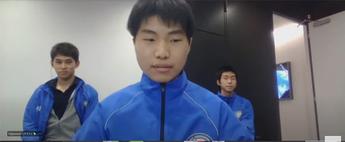
Left:Mr. Joshua Kinukasa Karpelowitz
Center:Mr. Yusei Alex Sato (leader)
Right:Mr. IZUMI Satoshi (Credit: JAXA)
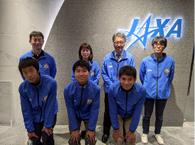
Commemorative photo (Credit: JAXA)
Simulation environment programming skill results list
* Class A: Program that completed the mission.
Class D: Program that has only read the QR code of P1.
* In the case of Class A, "Elapsed time" is the time when the program ended. For other Classes, the time completed reading each point of P1 and P2.
* Score is calculated based on the mission completion time and the distance from the center of the laser target only for Class A.
Video of the result of all team's simulation (Credit: JAXA)
Next, Astronaut Yui announced the Best Achievement Onboard Award. It was given to a team that performed the best movement in-orbit, and the Spacecat (Indonesia) got the title. Their laser irradiated close to the target, but unfortunately, the laser's center was slightly outside of the target. Their score was very close to that of Taipei Fuhsing Robotics Omega (Taiwan) in 2nd place. However, since both teams missed the target, Spaceat, Indonesia won the competition because their program was faster than Taiwan Fuhsing Robotics Omega, Taiwan.
Spacecat orbital run video (Credit: JAXA)
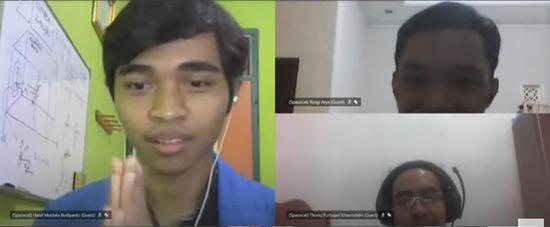
Left: Mr. Hanif Mustafa Budiyanto (leader), Upper right: Mr. Rizqy Arya Dinata、Lower right: Mr. Thoriq Purbajati Kaeruddin (Credit: JAXA)
Orbital run results list
| Ranking | Team Name | Country / Region | Class | Elapsed Time | Score |
|---|---|---|---|---|---|
| 1 | Spacecat | Indonesia | A | 190.2sec | 53.89points |
| 2 | Taipei Fuhsing Robotics Omega | Taiwan | A | 201.6sec | 52.38points |
| 3 | GALENVEX | Australia | C | 201.5sec | - |
| 4 | won-spaceY | Thailand | D | 23.3sec | - |
| 5 | 999-IN-SPACE | UAE | D | 66.7sec | - |
| 6 | Hypernova | Japan | D | 98.3sec | - |
| 7 | Moonmen Group | Singapore | E | - | - |
* Class A: Completed the mission
Class C: Read the QR code of P1 and P2
Class D: Only read the QR code of P1
Class E: Could not read the QR code
* In the case of Class A, the "Elapsed Time" is the time when the program ends. For other Classes, the "Elapsed Time" is the time completed reading each P1 or P2.
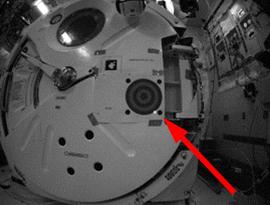
Spacecat laser irradiation position
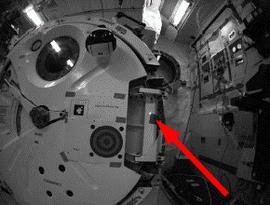
Taipei Fuhsing Robotics Omega laser irradiation position
Although the final event took about 5 hours, it seems that they enjoyed participating until the end according to the participants' comments. The event successfully completed the 1st Kibo-RPC with the cooperation of many staff's teamwork and the efforts participants made who never gave up until the end. JAXA hopes that participants apply the things learned and experienced in this event to their great future.
The 1st Kibo-RPC was attended by 1168 students of 313 teams from Australia, Indonesia, Japan, Singapore, Taiwan, Thailand, and the United Arab Emirates. Besides, including Bangladesh that has joined the 1st Kibo-RPC as an observer, the number of participants increased to 361 teams and 1340 students.
We want to thank everyone who participated and supported us. And we are planning to hold the 2nd Kibo-RPC, so let's join us!
State of the final round event
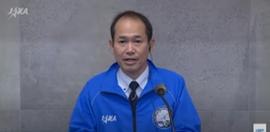
Project Manager:
DOI Shinobu JEM Utilization Center (Credit: JAXA)
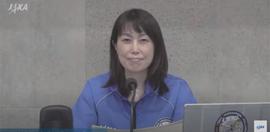
MC:
Astronaut YAMAZAKI Naoko (Credit: JAXA)
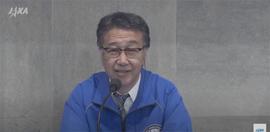
Commentator/Advisor:
Professor NAKASUKA Shinichi, The University of Tokyo (Credit: JAXA)
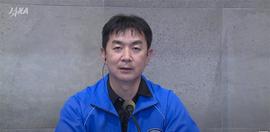
Commentator:
JAXA astronaut YUI Kimiya (Credit: JAXA)
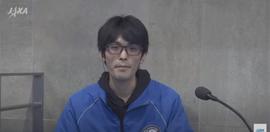
Assistant Commentator:
YANAGIDA Kanta, The University of Tokyo (Credit: JAXA)

NASA Astrobee Facility Project Manager:
Jose V. Benavides (Credit: NASA)
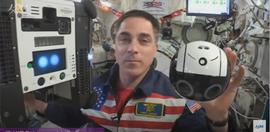
On Orbit Crew:
NASA astronaut Chris Cassidy (Credit: NASA/JAXA)
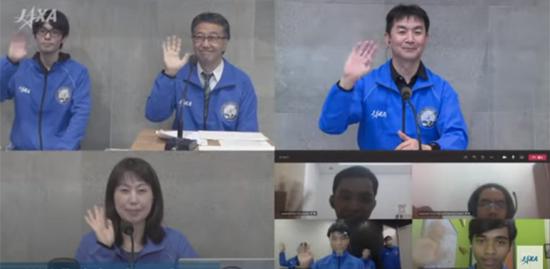
Event closing (Credit: JAXA)
Related links
| Copyright 2007 Japan Aerospace Exploration Agency | Site Policy |


